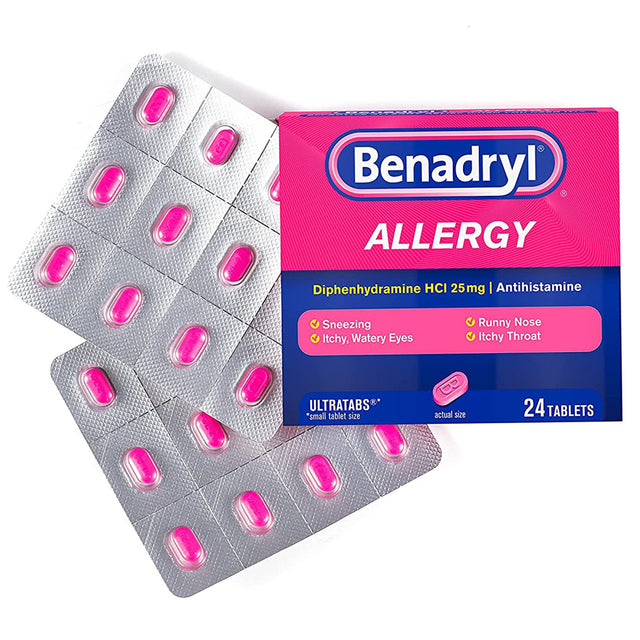
Allergy Medicine
-

Goodsense Allergy Relief Tabs 10's
Goodsense Allergy Relief Tabs 10's Loratadine Tablets, 10 mg, active ingredient is Loratadine 10 mg, an antihistamine approved for the treatment of both indoor and outdoor allergy symptoms. One dose of Loratadine Tablets, 10 mg works for a full 24 hours. Loratadine Tablets, 10 mg is approved to temporarily relieve indoor and outdoor allergy symptoms in adults and children 6 years and over. Instructions Adults and children 6 years and over: 1 tablet daily; not more than 1 tablet in 24 hours. Children under 6 years of age: ask a doctor. Consumers with liver or kidney disease: ask a doctor. Other information: Store between 20° to 25°C (68° to 77°F). Protect from excessive moisture. Uses: temporarily relieves these symptoms due to hay fever or other upper respiratory allergies: runny nose; itchy, watery eyes; sneezing; itching of the nose or throat. Warnings Safety Warning: Do not use if you have ever had an allergic reaction to this product or any of its ingredients. Ask a doctor before use if you have liver or kidney disease. Your doctor should determine if you need a different dose. When using this product do not take more than directed. Taking more than directed may cause drowsiness. Stop use and ask a doctor if an allergic reaction to this product occurs. Seek medical help right away. If pregnant or breast-feeding, ask a health professional before use. Keep out of reach of children.
XCD $14.20


